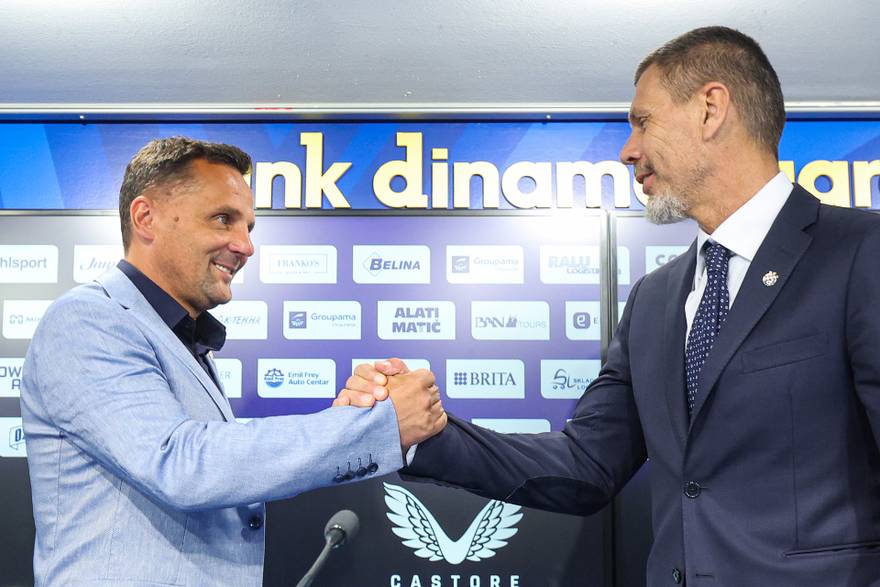The Ayatollahs don’t want to end up as Gaddafi
:format(webp)/s3/static.nrc.nl/wp-content/uploads/2025/04/09064515/data130578210-214037.jpg)
In the days prior to the negotiations that will take place in Oman on Saturday between the United States and Iran on the Iranian atomic program, both countries further perform the tension. If the conversations run out of nothing, then military intervention is ‘absolutely’ possible, the US President Donald Trump repeated again on Wednesday. Iran threatened the next day with the release of the inspectors of the atomic watchdog of the United Nations.
In addition, Trump has strengthened his war rhetoric in recent weeks with troop structure in the region. This week a second American aircraft carrier reported in the Middle East, while at the end of last month B-2 bombers were stationed on the American base Diego Garcia in the Indian Ocean.
There is still much unclear about Saturday’s negotiations. For example, it is unknown whether the Iranian foreign minister Abbas Araghchi and Steve Witkoff – Trumps golf friend and leader of the American delegation – will actually be at the table physically. The delegations of the two countries may be in separate spaces. In that case, Omanian diplomats act as messengers back and forth. The US maintains that the two parties will speak directly with each other, Iran does not claim.
Read also
US and Iran are going to talk, with their weapons in the attack
Concessions
It can both be true are, says Hossein Mousavian, former Iranian diplomat and involved in nuclear consultation in the past. Initially, the purpose of conversations will be to agree on a structure and time path for the negotiations. « If the outcome is positive, the Iranian and American delegations will then start direct conversations, » said Mousavian on Message Platform X.
The core of the negotiations is that Iran wants to get rid of the disruptive American sanctions against its economy and that the US hope to restrict the Iranian atom program. The question remains on which points the countries are prepared for concessions.
/s3/static.nrc.nl/images/gn4/stripped/data130737625-4a38db.jpg|https://images.nrc.nl/1OWyLDd307RrVtGm3IED6oIGH4I=/1920x/filters:no_upscale()/s3/static.nrc.nl/images/gn4/stripped/data130737625-4a38db.jpg|https://images.nrc.nl/sL8gfi3W6bYZjDmMYSl8RFqmfqU=/5760x/filters:no_upscale()/s3/static.nrc.nl/images/gn4/stripped/data130737625-4a38db.jpg) A recent satellite photo shows six American B-2 bombers who moved the US to Diego Garcia in the Indian Ocean last month.
A recent satellite photo shows six American B-2 bombers who moved the US to Diego Garcia in the Indian Ocean last month.
Photo Planet Labs PBC
Trump announced the negotiations with Iran in the presence of Israeli Prime Minister Benjamin Netanyahu in the Oval Office last Monday. Netanyahu then insisted that Iran should follow the so-called ‘Libya model’: the complete dismantling of his nuclear infrastructure.
Iran is not prepared for this, stated Iranian foreign minister Abbas Araghchi the day after the press moment of Trump and Netanyahu. Iran would never agree with a deal like the Americans in 2003 closed with Libya. « The US can only dream of such a outcome, » said Araghchi.
Libya
In 2003 the US and allies invaded Iraq in search of mass destruction weapons. The Libyan leader Moammar Gaddafi did not want to run the same risk: after nine months of secret negotiations with the US and the United Kingdom, he agreed with the full dismantling of the Libyan Atomic program. Centrifuges and other supplies for enriching uranium were packed and shipped to the US where they were stored in a lab in the state of Tennessee.
The then American President George W. Bush said he hoped that other leaders would take an example of Gaddafi’s decision to give up his atomic program.
That didn’t happen. Iran’s supreme leader Ayatollah Ali Khamenei spoke to a speech mockingly about the decision of Gaddafi during a speech. « The Lord (Gaddafi) collected all his nuclear material under pressure from empty threats, loaded it on a ship and handed it to the Westerners, said to them: » Take it! » Iran would not follow in the footsteps of Libya, stated Khamenei: « Look at what stands for their country. »
For Tehran, the fall of Gaddafi was a warning: after giving up his atomic program, it was still descended from the saddle
Irans Ayatollah referred to the civil war that raged in Libya. A conflict, in which the US and European allies had moved to bomb the Libyan army after Gaddafi had threatened with the killing of the inhabitants of the city of Benghazi, who was in the hands of rebels. The military intervention of the West made the balance in the war tilt. Gaddafi fled and was killed by rebels a few months later.
For Tehran, the fall of Gaddafi was a warning: after giving up his atomic program, the Libyan leader was still descended from the saddle with the support of the US.
Dismantle
Analysts therefore expect that Iran will not agree with a Libya-like deal. A more chance has an agreement as it was agreed in 2015, with Iran not entirely on his nuclear program, but considerably limited. In 2018, however, Trump unilaterally withdrew from that agreement.
/s3/static.nrc.nl/images/gn4/stripped/data130737687-25d863.jpg|https://images.nrc.nl/d3FhETEldVcjzru5ediIb9OcW8A=/1920x/filters:no_upscale()/s3/static.nrc.nl/images/gn4/stripped/data130737687-25d863.jpg|https://images.nrc.nl/hPWx0H2SfosDxhRM1xYf7fRF7ko=/5760x/filters:no_upscale()/s3/static.nrc.nl/images/gn4/stripped/data130737687-25d863.jpg)
Photo Evelyn Hockstein/Reuters
We wait and see what requirements the United States will put on the table this time. The Trump government seems divided. Just like Netanyahu, Trumps national security advisor Mike Waltz speaks about the need to « completely dismantle » the Iranian atom program.
On the other hand, Steve Witkoff, delegation leader during the negotiations on Saturday, wants to « rig a » verification program, so that no one has to worry about Irans nuclear material « . The latter is much more like the 2015 deal than the ‘Libya model’. How Trump thinks about it is unclear.
Read also
How does Iran react to the mixed signals from Washington? ‘This is a ticking time bomb’

:format(webp)/s3/static.nrc.nl/wp-content/uploads/2025/03/28212552/data129992247-f0e10b.jpg)
:format(webp)/s3/static.nrc.nl/images/gn4/stripped/data132512191-bf7b93.jpg)
/s3/static.nrc.nl/images/gn4/data133305174-ec8c91.jpg)





